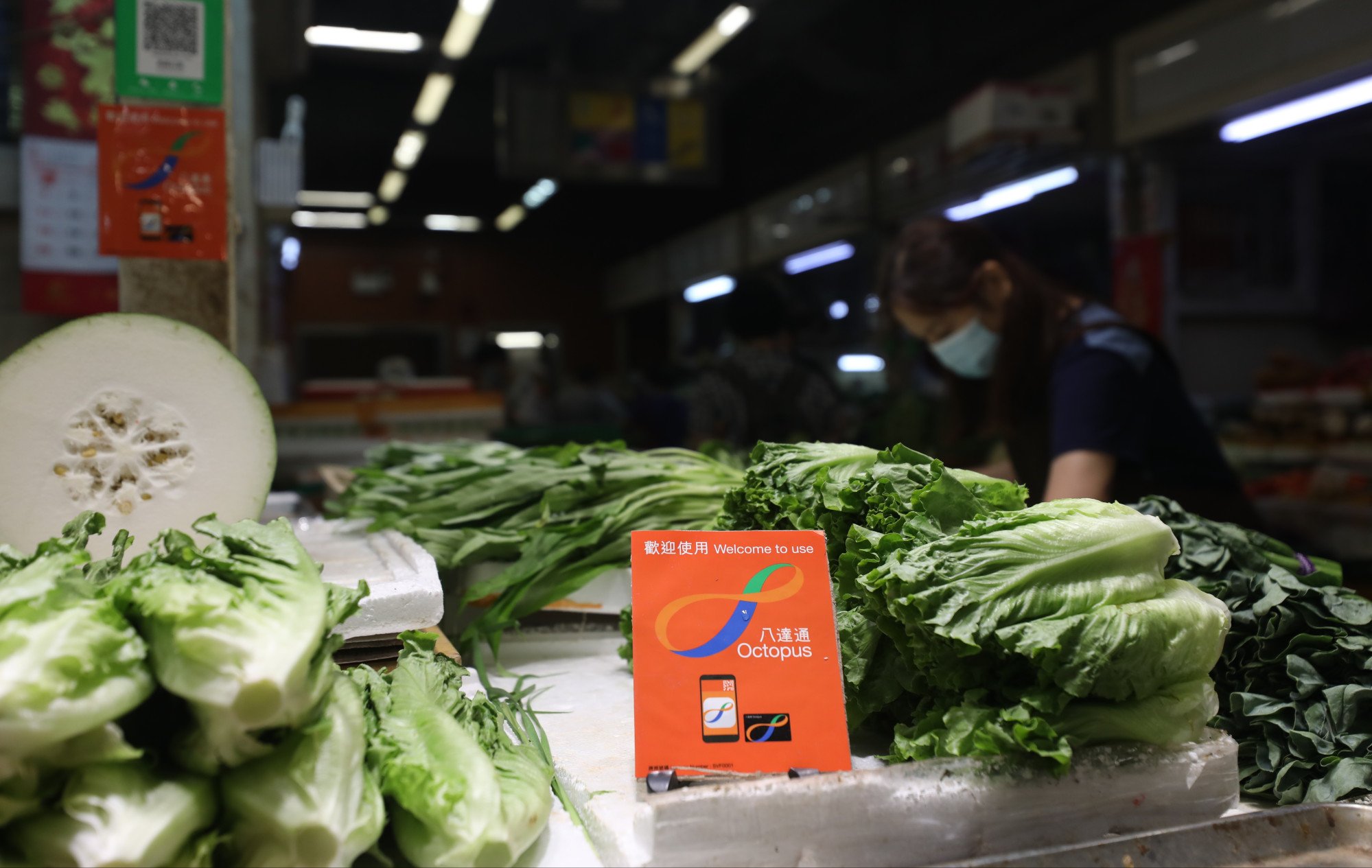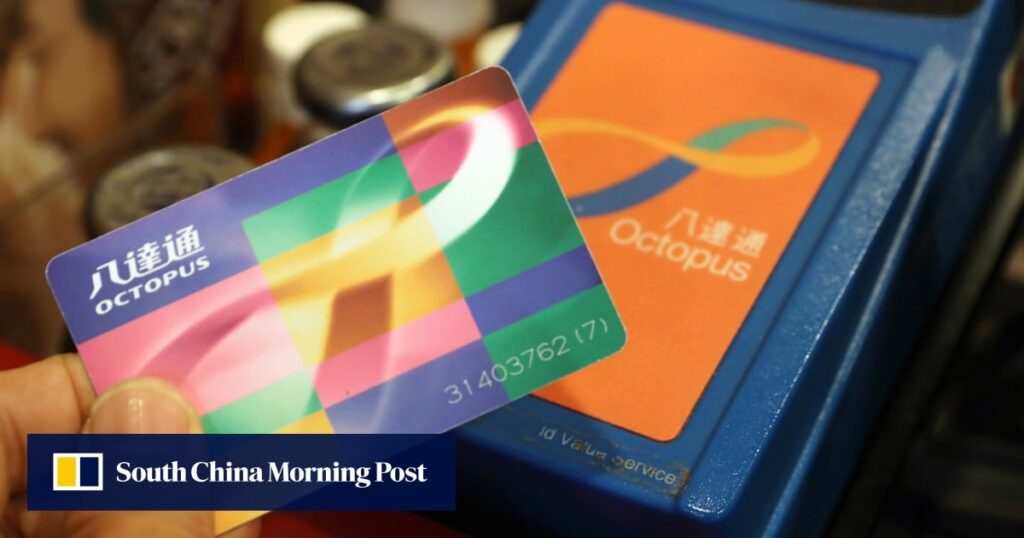Businesses are facing a tougher market as Hong Kongers increasingly cross the border to buy cheaper goods and services in mainland Chinese cities such as Shenzhen, buoyed by a strong Hong Kong dollar.
Golden Garden Cafe, a cha chaan teng in Sham Shui Po, recently stopped accepting Octopus payments but kept AlipayHK as the outlet's only electronic payment method.
AlipayHK is owned by Ant Group, an affiliate of Alibaba Group Holding, which also owns the South China Morning Post.
The restaurant, which is located near several outlets, introduced electronic payment methods to attract customers who want to use their e-vouchers during the pandemic.
Retiree Lee Cho-cheong, 65, expressed surprise over the weekend when a restaurant cashier told him Octopus was no longer available as an electronic payment method.
“Why not accept Octopus?” he asked then.
“We need to do more business to cover the cost of using Octopus, but business is really tough right now,” the cashier replied.
The restaurant employee added that while Octopus only takes a small fee per transaction, every penny counts during an economic downturn.
AlipayHK and Octopus operate different billing models for merchants who use their e-payment services.
For example, the former is offering a free monthly allowance of HK$50,000 (US$6,400) for transactions at cha chaan tengs.
Once a restaurant passes the threshold, they will be charged a 1.2% fee on any further transactions, and once they pass that level, their free month will also be eliminated.
When non-transport businesses transfer funds from their Business Octopus accounts to banks, providers charge a service fee of 1.5% of the relevant transaction, or a minimum of HK$1.

Shanghainese restaurant Wu Yong Chun in Causeway Bay is one of the establishments that has reverted to cash-only payments after installing Octopus card readers during the pandemic.
A cashier at the eatery, who declined to give his name, said restaurants prefer cash as it is the easiest form of payment possible.
Councillor Michael Thien Pukson said he thought practical inconveniences of the technology underpinning the Octopus electronic payment system were more likely the reason for the switch than economic considerations.
“This is especially important in wet markets, where sellers don't want to take off their gloves and enter the amount into an Octopus reader,” he said. “This partly explains why Alipay HK and WeChat Pay are more popular in wet markets.”
Octopus is expected to announce measures to support small businesses and micro-businesses on Tuesday afternoon.
There are currently at least 20 e-payment platforms available in Hong Kong, with Octopus, AlipayHK and WeChat Pay being the most popular.
Hong Kong-based consulting firm Quinlan & Associates released research last year showing that total electronic payments will grow 14% between 2019 and 2022 to reach HK$249 billion.


